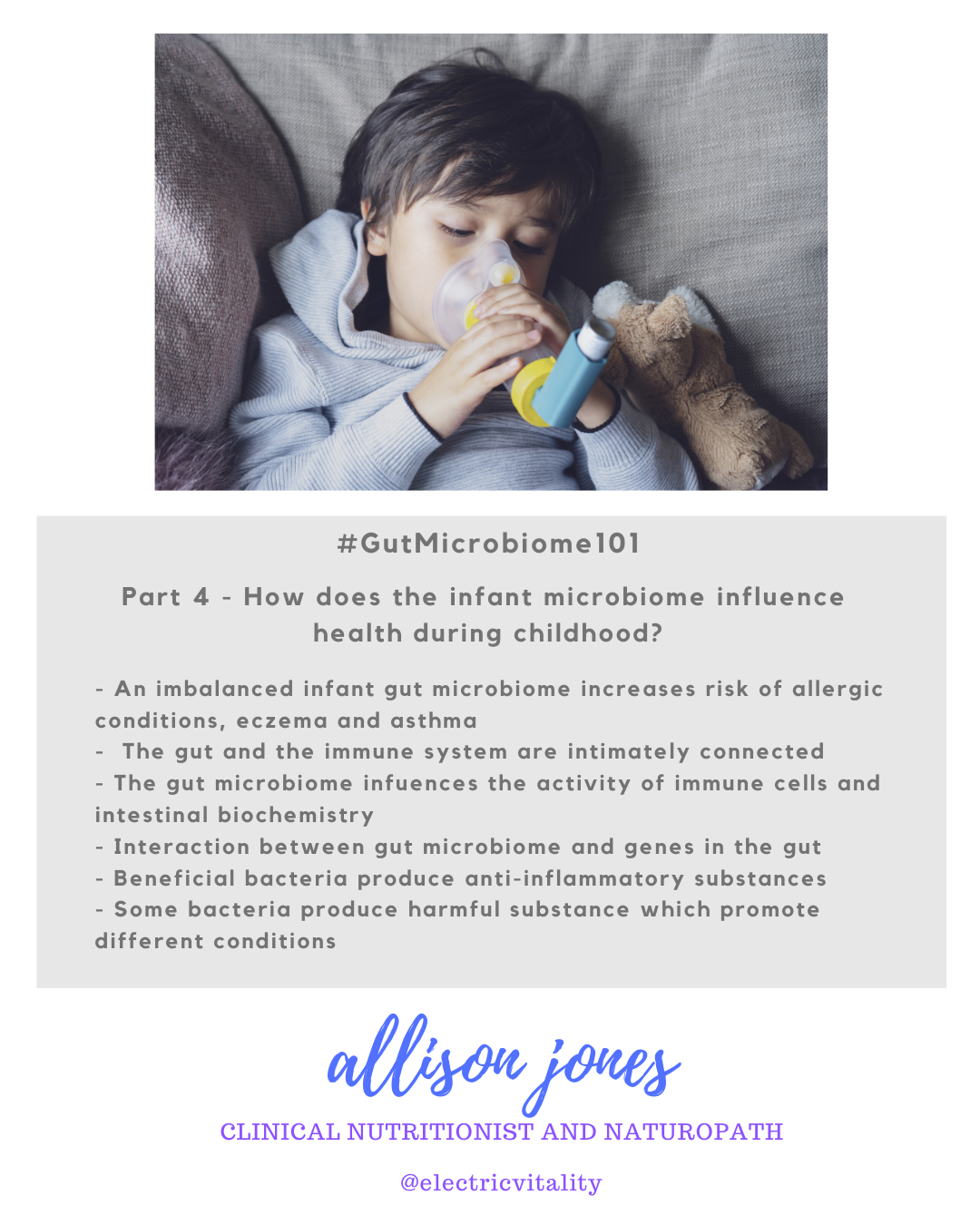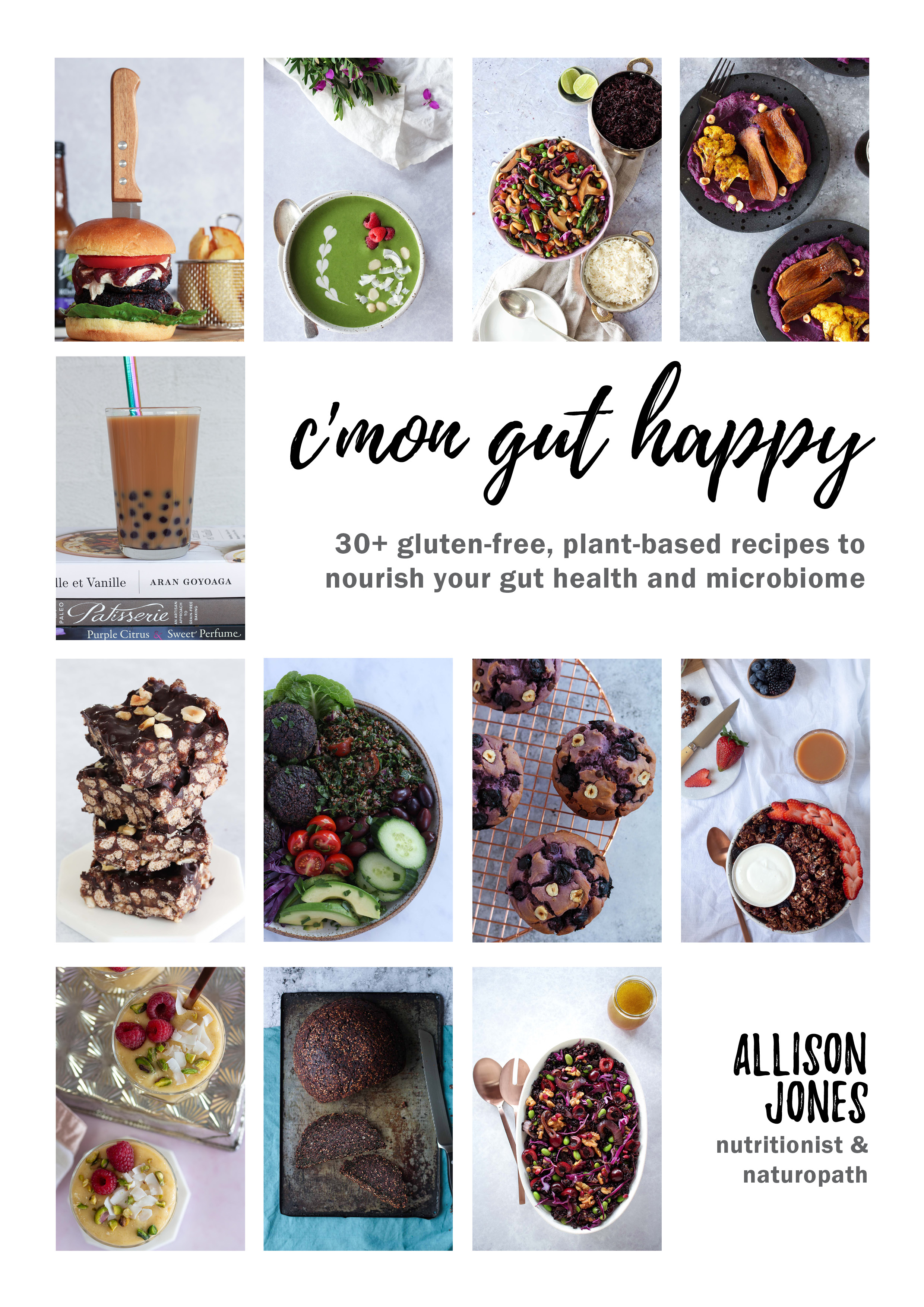Welcome to Part 4 of the Gut Microbiome 101 series, in which we will look at how the infant microbiome influences health.
In the previous post in this series, I explained how there is convincing evidence that the mode of delivery has lasting health implications during childhood and beyond. In this post, we look at some currently known mechanisms behind this.
Remember, the gut and the immune system are intimately connected and the gut microbiome has a central role in immune system function. The microbiome helps to mature and educate the immune system so that it correctly responds to different substances like food proteins, normal gut microbes and pathogens.
When the microbiome is somehow impaired and the immune system is dysfunctional, particular conditions like asthma and allergy are more likely.
The various mechanisms thought to link the gut microbiome to these types of issues include:
- microbiome influence over the intestinal biochemistry
- interaction of gut bacteria with genes in the gut
- production of butyrate, a key anti-inflammatory substance made by some beneficial bacteria
- influence over the activity of different immune cells
Observational studies from the early 2000s highlighted that infants who carry a significant imbalance of micro-organisms amongst their gut microbiota (‘dysbiosis’) may be at risk of developing atopic dermatitis (eczema) and allergic sensitization. Animal studies built on this finding by exploring the mechanisms which may play a role.
More recently, a particular human study published in 2019 identified a potential culprit – a fatty molecule produced by gut bacteria was found in high amounts in children that went on to develop allergy by age 2 or asthma by age 4. This molecule appears to alter the function of particular immune cells. This finding came about in two different groups of infants, though it does need to be repeated in larger sample sizes and the mechanism needs to be determined. It is likely that there are numerous compounds derived from the gut microbiome that influence allergy and asthma development but this is an important first step.
In regards to food allergy, studies using germ-free mice (those that are in a sterile environment and have no microbiome) suggest that the status of the microbiome at the time a food is introduced will influence tolerance or reactivity to that food. A particular bacteria called Prevotella copri has been identified as a key protective species linked to reduced allergic reactions in the offspring of mice with a high-fibre diet.
In a human study, this same bacteria in the mother’s stool was also associated with a decreased risk of allergy in offspring. Only one mother with an infant who had allergies had more than 0.03 per cent of the bacteria detected in her stool sample. This bacteria may also protect against atopic conditions which often develop in children sometime after food allergies. Large households were a strong forecaster of P. copri being present in the mother’s microbiome, probably because there are more people to share microbiota with, which boosts microbiome diversity.
P. copri is less prevalent in Western countries due to a range of factors, including generally smaller households and greater use of antibiotics, which the bacteria is sensitive to.
A large cross-sectional survey of young children with milk allergy showed that greater gut microbiota diversity and enrichment of protective Clostridia and Firmicutes phyla during early infancy is associated with greater likelihood of out-growing milk allergy by eight years of age.
Yet another study transplanted allergic infant and non-allergic infant microbiomes in to germ-free mice, finding that a species called Anaerostipes caccae was protective against allergy development – this was confirmed when it was transplanted on its own in to germ-free mice.
At this stage, there is emerging evidence that targeted probiotic supplementation may help with the symptoms of cow’s milk allergy, less so with actual tolerance to cow’s milk protein. Studies however were always done in a medical setting and the evidence is not yet definitive. If you have a child with an allergy, always consult a doctor for advice. Don’t try to treat a child’s allergy with probiotics.
In the next post in the Gut Microbiome 101 series, we will look at the different factors that influence the makeup of the individual's gut microbiome over a lifetime.
References
https://www.ncbi.nlm.nih.gov/pubmed/29732975
https://www.nature.com/articles/s41564-019-0498-2
https://theconversation.com/are-microbes-causing-your-milk-allergy-110093
https://www.nature.com/articles/ismej2015151
https://waojournal.biomedcentral.com/articles/10.1186/s40413-018-0204-5
Are you looking for recipes to support your gut microbiome health?
My second eBook, C'mon Gut Happy, is just what you need! Over 30 delicious plant based, gluten free recipes with evidence based ingredients to support your gut microbiome health!
Instant download here.




Leave a Reply